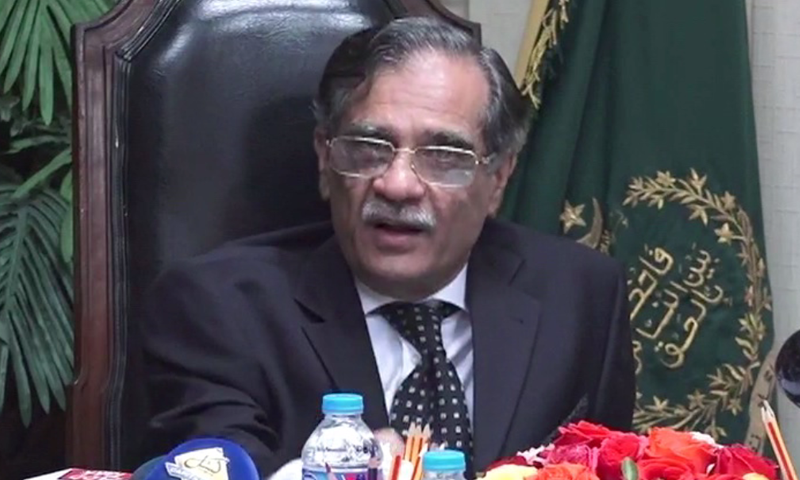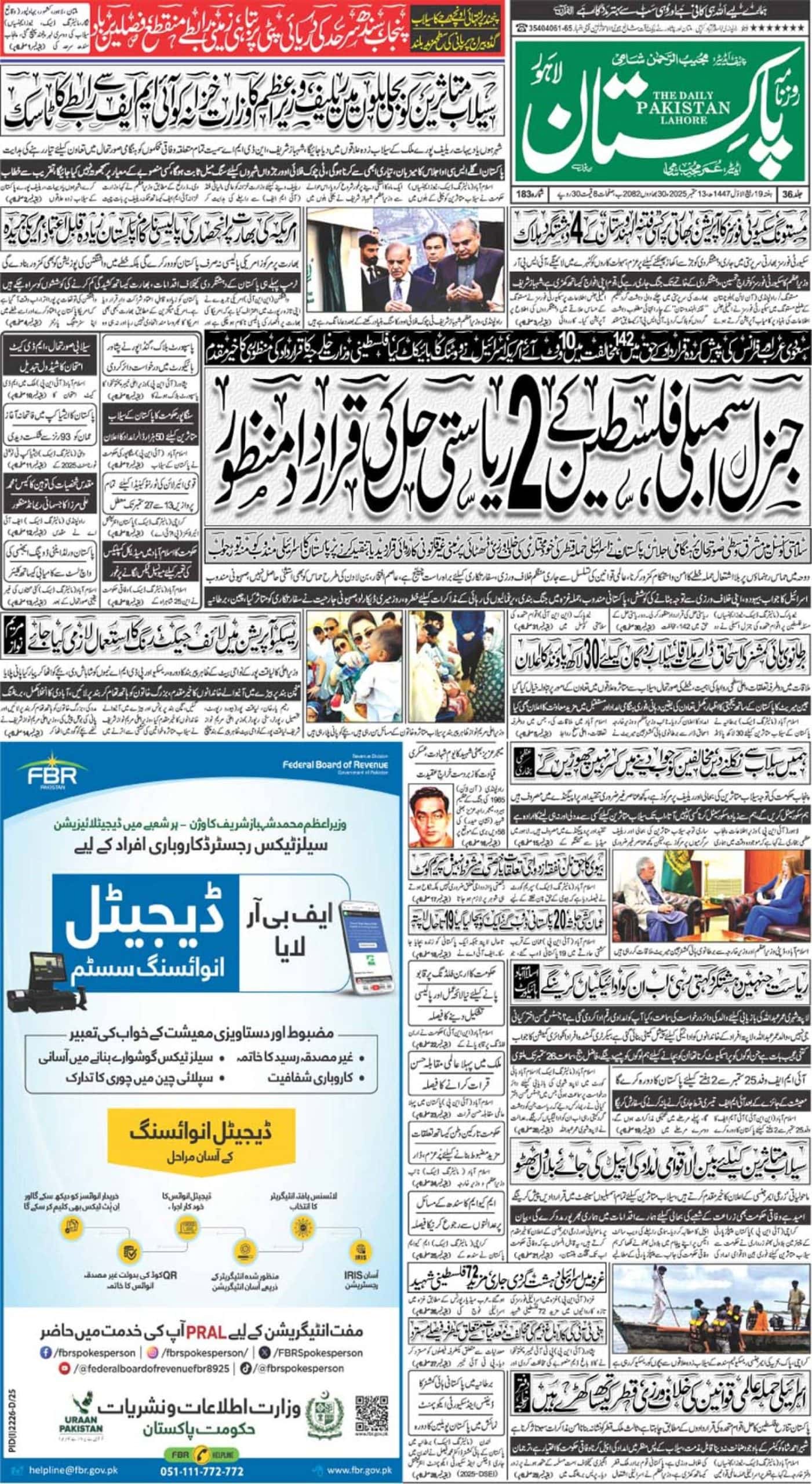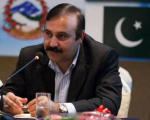ISLAMABAD – Chief Justice of Pakistan, Mian Saqib Nisar took a swipe at the leading publicatins and media channels for misinterpreting the verdict of Lahore High Court regarding the reported ban on contemptuous speeches.
During the hearing of a suo moto notice on Tuesday, the top judge reprimanded the counsel for Pakistan Electronic Media Regulatory Authority, Salman Akram Raja and declared that the authority did nothing after the fake news was aired by the media franchises.
A three-member bench of the apex court remarked that no ban was placed on former Prime Minister Nawaz Sharif and his daughter Maryam Nawaz by the Lahore High Court, as their names were not mentioned in the verdict, contrary to what was reported on media.
The top judge also grilled acting Pemra chief and wondered about the actions taken after the ‘fake news’ was broadcasted by mainstream media channels.
The Chief Justice inquired whether the media watchdog issued any notice to media channels to which the acting Pemra chief replied that the authority would issue the notices immediately.
The bench observed that the high court had only ordered PEMRA to enforce the article 19 and 68 of the constituion, adding that the court cannot curtail fundamental rights.
The top judge visibly seemed perturbed during the hearing and inquired about who ordered the maneuvering of the news, in a reference to the publication of LHC’s verdict in newspapers.
“I simply cannot accept that a court reporter could have furnished this news” observed the chief justice.
Earlier, on Tuesday, the top judge directed the registrar Supreme Court to seek the record of the case from the provincial high court, besides issuing notices to Pakistan Electronic Media Regulatory Authority (PEMRA) and Attorney General.
Salman Akram Raja’s interaction
During the hearing of the case, renowned lawyer Salman Akram Raja contended that he was the counsel for Pakistan Electronic Media Regulatory Authority.
To this, the CJP replied that you were also the counsel for former Premier Nawaz Sharif wondering whether it was a conflict of interest or not.
Raja replied that he had been representing the media regulator before courts for quite some time.
Upon this, the top judge replied that he had also argued on behalf of Pakistan Muslim League, remarking how could he represent Pemra now.
Salman Akram Raja then tendered a verbal apology and expressed that he was withdrawing his power of attorney papers.
However, the CJP warned that the court would revoke his license and issue him a notice, though such actions were actually not taken by the august court.
Earleri, during the hearing of a separate case, Justice Sheikh Azmat Saeed observed that the LHC decision was misinterpreted on media as the written order was not perused by anyone.
“Those talking about the judgment should first learn English,” remarked the judge.
The court also directed the attorney general to find out when Nawaz and Maryam are available so they or their counsels can appear in court for the hearing.
Earlier on Monday, the Lahore High Court ordered a temporary ban on the airing of contemptuous speeches over two dozen petitions filed against ‘anti-judiciary’ speeches by Nawaz Sharif, his daughter Maryam Nawaz, Prime Minister Shahid Khaqan Abbasi and other senior leaders of the party.
https://en.dailypakistan.com.pk/headline/lhc-bans-broadcasting-of-contemptuous-comments-by-nawaz-sharif/
The provincial high court ordered the Pakistan Electronic Media Regulatory Authority (PEMRA) to decide on the petitions within 15 days, directing the authority to refrain from airing any contemptuous remarks till that span is over. Moreover, the electronic media regulator was also instructed to remove anti-judiciary content.
During court proceedings, Petitioner’s counsel Advocate Azhar Siddiqui informed the court that PEMRA did not take any action over petitions filed regarding anti-judiciary speeches.
The full bench headed by Justice Mazahir Ali Akbar Naqvi and comprising Justice Masood Jahangir and Justice Atir Mahmoud Justice Naqvi remarked that while Article 19 of the Constitution allowed fair criticism of judiciary, not every person should be allowed to criticise it just for the sake of exercising their right to criticise.
Justice Naqvi added that it made sense for a lawyer or an expert to express his viewpoint on judicial verdicts but not every other person.
Meanwhile, Nawaz’s counsel AK Dogar raised objections to the inclusion of Justice Naqvi in the bench arguing that the judge authored the order against Nawaz Sharif.
















